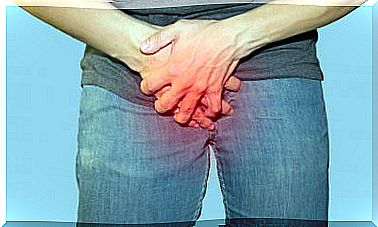Why Do Mouth Sores Appear?
Mouth sores are benign lesions that can appear anywhere on the mucosa of the oral cavity. We review its causes and some preventive measures.

Have you ever wondered why mouth sores get? Although you do not always know well what its origin is, you have surely experienced the discomfort and sensitivity that they generate in the area. That is why they are so feared!
Also known as canker sores or oral ulcers, these are excavated lesions, usually whitish and with a red halo that appear anywhere on the mucosa of the oral cavity, such as on the cheeks, tongue or gums.
Mouth sores are not contagious, but they are quite annoying; its size is about five millimeters. A publication in the Western Journal of Medicine (WJM) indicates that around 20% of the world’s population suffers from mouth ulcers on a regular basis, being the most common oral lesion after cavities.
Why do mouth sores appear? Possible causes

The causes of the appearance of sores can be very varied. Among the most common listed by the WJM are the following:
- Stress situation maintained over time.
- Having suffered from an infection, such as herpes, chickenpox or fungal infections, among others.
- Diet with insufficient amount of vitamins and minerals, which causes a weakening of the immune system.
- Rubbing with prostheses or orthodontic appliances, such as braces.
- Bites
- Hormonal changes, according to a publication from the Institute for Quality and Efficiency in Health Care .
- Allergies
- Side effects of drugs.
- Stomatitis.
- Tobacco.
Apart from these causes, we find others such as some systemic pathologies. For example, Crohn’s disease is characterized by the presence of mouth blisters.
The weakening of the immune system mentioned above can occur for different reasons, such as flu, immunosuppressive treatments, autoimmune pathologies, and so on.
The sources cited above agree that the deficiency of group B vitamins directly affects oral health ; so this deficiency ends up producing ulcers. Therefore, foods high in vitamins and minerals are essential for oral health.
Duration of sores
After a week or two, the sores usually disappear spontaneously without leaving a trace of a scar. If after 15 days they continue to remain in the mouth or have changed their size, it is very important to see a dentist, as they may be a sign of some other more important pathology.
How are they treated?
There are drugs that are used to relieve the discomfort and pain caused by canker sores. The dentist will recommend the one that is most appropriate depending on each case. A 2014 study confirms that the use of medications such as antiseptics and anti-inflammatories can help ease discomfort.
Meanwhile, treatment with mouthwash can provide temporary relief. Likewise, it is possible to obtain gels with hyaluronic acid that accelerate the healing process and that are of great help for this type of injury. Ask your dentist for advice on its use.
There are home treatments that, according to popular beliefs, can be helpful in relieving pain and reducing the time of injury to the mouth. Such is the case with the mint infusion and rinses with water and salt.
However, beyond the analgesic and anti-inflammatory effects of peppermint confirmed by a study published in the Journal of the International Society of Sports Nutrition , these options lack evidence regarding safety and efficacy for treating mouth sores.
How to prevent mouth sores

Although it is not always possible to prevent mouth ulcers with 100% effectiveness, there are certain habits that help reduce the risk of them appearing. The studies cited above mention the following:
- Avoid spicy foods or hard foods.
- Maintain good oral hygiene.
- Eat a balanced diet.
- Meet the minimum daily water needs.
- Not intentionally biting your lips, as many people tend to do in nervous or anxious situations.
In addition to these daily actions, there are also those who recommend placing wax on orthodontic appliances the first days of use, in order to avoid rubbing that can lead to sores. However, it is advisable to follow the dentist’s instructions regarding this particular issue.
Mouth sores – usually nothing to worry about
Most of the time, mouth sores are benign and disappear in a short time. However, they can also be the secondary symptom of certain diseases, increasing their recurrence. Therefore, if they occur constantly or if they are large or very painful, you should consult your doctor or dentist to examine them.
Ultimately, it is appropriate to reiterate the advice to follow conservative treatment and avoid home remedies as much as possible. In any case, if the discomfort does not subside, consult your dentist for more specific indications about why the sores appear in the mouth and how to cure them.








